Western ineptitude compounded by systemic corruption in Afghanistan has laid waste to its economy
The story of Afghanistan has been front page news for quite some time. The Afghanistan debacle shows how waging a war, occupation and retreat, can destroy a country and that is what the US and NATO partners have done.
Where is Afghanistan's economy, where is it going to be headed to next or what's left of it under the Taliban?
The exorbitant US spending in the Afghan war, $2.26 trillion, corruption, waste, unfinished projects and an expense that will continue for quite some time, even after the US, pull out, that's in the form of interest paid on borrowed funds.
Was it worth it?
Let’s take a look at the economy under the Taliban.
What was the economy like before they took control? What will be their source of revenues? Will they discontinue their opium sales?
We'll cover that. And then we will take a look at what Afghanistan prides itself in terms of its products and commodities; water and minerals.
China has practically welcomed the Taliban with open arms, was it due to the One Belt One Road project, or with an eye on Afghanistan's mineral wealth?
The US war in Afghanistan has ended after 20 years. The US president, Joe Biden, justified his withdrawal.
I stand squarely behind my decision. After 20 years. I've learned the hard way.
Joe Biden, Former US President
The current cost to date $2.261 trillion with the DOD spending $933 billion, having to pay a staggering $530 billion in interest on loans taken out, something the US has to continue paying even after the war has ended.
What does the US have to show for it?
SIGAR, The Special Inspector General for Afghanistan Reconstruction, created by the US Congress to provide independence and objective oversight of Afghanistan reconstruction projects and activities.
Report after report, the naked truth was revealed. Shockingly, corruption and waste are rampant.
The latest report confirmed more or less what the previous reports titled, "what we need to learn, lessons from 20 years of Afghanistan reconstruction" revealed.
It concluded the US failed to implement a coherent strategy in over 20 years. It did not understand the Afghan context, and failed to tailor its efforts accordingly. "We were devoid of a fundamental understanding. We did not know what we were doing".
Many of the institutions and infrastructure projects the US had built were not sustainable, or even usable.
To me it's billions of dollars that probably have been wasted, we built schools that are falling down, we built clinics that there are no doctors for, we built roads that are falling apart.
John F Sopko, Special Investigator, SIGAR
Some examples of this waste are: The Tarakhil power plant, $335 million, used but not as intended and in a deteriorated condition. The Wardak National Police Training Centre, $98 million, used as intended, but deteriorated.
The most critical failure: the Afghan army. $88.3 billion spent for training and equipment.
The Afghan economy wasn't a functioning economy based on supply and demand. There were other factors which spurred economic activity. Afghanistan is extremely poor, landlocked, and highly dependent on foreign aid.
Corruption, insecurity, weak governance, lack of infrastructure, these are all challenges to future economic growth. The Afghan economy sustained nearly a decade of strong growth, international assistance, which placed around $86.8 billion.
Because its gross domestic product, estimated at $22 billion, has grown nearly threefold since the Taliban were driven from power in 2001.
According to the World Bank, three fourths of the government's budget is funded by international donors. Let's say the economy even with international assistance was so weak that 90% of the population lives on less than $2 a day. That's according to former President Ashraf Ghani.
Since 2001 the US has spent an estimated $26 trillion yielding a chaotic, humiliating, and America's longest war because, really, the money is under question as to where it went. Corruption has been cited, from both the US and Afghan side, and there are countless unfinished projects.
So where did this money go, why was it not spent wisely?
The money that the US and other nations spent in Afghanistan was spent in different ways, somewhere, almost the most big chunk of it were spent for military purposes, their own military to come and fight the Afghans, it was not for the rebuild of Afghanistan or building structures in Afghanistan that could benefit the Afghan people and Afghanistan as a whole, but very big chunk of this was spent through the war, but the portion that was spent through the Afghan government and the NGOs, non government organizations, that money that was spent on these two sectors, was split again into two.
Some were given to the NGOs and some were given to the Afghan government.
Mohammad Daoud Abedi, Afghan Nation Peace Council, Chairman
As Mr Abedi indicated that money was misused and misappropriated and nothing is clearer evidence of that than this case in point, Afghanistan's ghost money.
This ghost money is in reference to a tactic that was used by the CIA to get money to Afghanistan.
Now that the Taliban have overtaken Afghanistan, how are they going to make sure that they have an operational economy?
There are questions that, sooner rather than later, they have to deal with. For example, how are they going to run a finance ministry, and also a central bank, which is obviously a key factor in governance?
So far the US has actually blocked close to $9 billion of Afghanistan's money overseas, they're not going to let the Taliban access it so that's going to be a very key question.
How will foreign donors actually be able to trust them with aid?
The aid for Afghanistan is given on a yearly basis. Many countries around the world contribute to Afghanistan because, obviously, it's a country that's been wracked with years of wars.
And since many members of the Taliban are sanctioned, how will they access the global financial system? That's really important they need to transfer money, they need to have money coming in. How is that going to happen?
There still isn't a system of governance in place in Kabul, however, a senior Taliban leader, Wahidullah Hashemi, explains.
In future, this is not up to now discussed how it would be. Maybe we have a council, the head of the Council, as you call the president, we would call that Raees-al-Vozara or the head of the Council and we will have ministers, all the ministers will be appointed by this council and by the head of the Council.
Waheedullah Hashimi, Senior Taliban Leader
To begin with generating income is going to be very important to the Taliban, the solution may come in the form of what is called the informal economy.
The informal economy has large amounts of hidden money in the war zone. First off, trafficking opium, hashish, methamphetamine and other narcotics is set to bring the Taliban revenues of anywhere from 500 to $600 million yearly.
However, since they overran the country they have vowed not to continue this illegal trade.
But the biggest kind of trade that happens, the real money comes from another area that is not that well known, that is money which comes from the illegal movement of ordinary goods.
Now, it consists of things like fuel, and also consumer imports. So these are the goods that are flowing into this, what we call informal economy, which is the illegal movement of goods in this case.
In size, the informal economy dwarfed international aid, which flows into Afghanistan on a yearly basis.
Now, let's take a look at that source of income which is called the formal taxation of the informal economy, and then the formal taxation, fees for passage of goods, is what I'm talking about here, this is the collection of fees by armed personnel, the Taliban, to allow safe passage of the goods, the money produced from this taxation $235 million annually.
One of the largest sources of income is from Zaranj, a city bordering Iran, which provided the government with roughly $43.2 million in terms of annual duties, also an additional $50 million in direct taxes for the year 2020.
There was also a significant amount of undeclared trade, particularly of fuel, with total revenues from this border crossing amounting to $176 million per year. Now the total amount of trade through all of Afghanistan's border crossings needs to be looked at.
These revenues are estimated to total $2 billion per year, however, once informal trade is included that figure is going to be twice as high.
Well, at this point Afghans are definitely very worried about the chain of events that happened in their country with the collapse of the government, the Afghan currency is quickly losing its value, especially, in neighboring countries such as Pakistan.
In this day to day changing situation the Afghani currency has lost its value against the Pakistani rupee. We have borne losses. Information about the Taliban coming to power has adversely affected the Afghani currency. The value of the Afghani has decreased and the value of Pakistani rupee has increased.
Noor Ullah, Currency Trader
The US invaded Afghanistan in 2001 Up to now, $2.26 trillion has been spent according to a report by Brown University.
Now, this investment, if you will, has yielded a chaotic and humiliating end to America's longest war.
What went wrong and why is the Afghan government failing to deliver on the economic investments that were made by the US, which failed to bear fruit resulting in systemic corruption and unfinished projects despite the fact that the US spent $2 trillion on these failures?
I think we have to recognize that the US war in Afghanistan was always a kind of derivative war; it was a war of vengeance following the attacks of 911 despite the fact that none of the 911 hijackers were Afghans. They were Saudi and Egyptian, but the war was designed partly to keep up the level of tension in the United States, keep up US support for a coming war in Iraq.
Phyllis Bennis, Institute for Policy Studies
The Afghan invasion, and occupation for twenty years, was not a Democratic exercise by the US. At least that's not the way that it went down.
Alright our next piece now takes a look at the reasons behind this war which was nothing but a cash machine especially for military contractors.
It was one of the most revealing and shocking expose's to cover the US led Afghanistan war. Both journalism, numerous testimonials admissions too hard to swallow, revealing the truth about the Afghan War, and the lies behind it.
The Afghanistan, papers
US officials constantly said that we're making progress. They did not and they knew it.
Thanks to our military and our allies, and the brave fighters of Afghanistan, The Taliban regime is coming to an end.
Marvin Weinbaum, Professor Emeritus of Political Science at the University Of Illinois
For many of you this will be your last tour in Afghanistan and by the end of this year the transition will be complete and Afghans will take full responsibility for their security and our combat mission will be over.
Barak Obama, Former US President
To add salt to the wound, the US government did not have any idea what was going on, but the money was splurged with no exact accounting done.
But why, maybe this revelation by Wikileaks was the answer, made back in 2011.
Because the goal is not to completely subjugate Afghanistan. The goal is to use Afghanistan to wash money out of the tax bases of the United States, out of the tax bases of European countries through Afghanistan and back into the hands of a transnational security operation. That is the goal. The goal is to have an endless war, not success.
Jullian Assange, Wiki Leaks Founder
The Afghan President describes the killings as unforgivable; an American soldier is in custody after a shooting rampage, that's left 16 civilians, some women and children dead in Afghanistan southern Kandahar province.
ABC News
A shocking expose' out today in The Intercept reveals CIA backed death squads in Afghanistan have killed children as young as eight years old in a series of night raids many targeting madrassas, Islamic religious schools.
Democracy Now
And they dragged the two oldest looking boys out of that room, took them into another room, along with 10 other "older looking" students, but ... some of them were as young as eight or nine years old.
Andrew Quilty, The Intercept
One of the assets of Afghanistan which been focused on is its mineral wealth, and one country which appears to have its eye on it is China. China received a member of the Taliban recently.
Since the US has now withdrawn from the country China may be looking to back the Taliban with Afghan mining investments.
Rare earth metals in Afghanistan were estimated to be worth anywhere between 1 trillion and $3 trillion in 2020. Only hours after the Taliban overran Afghanistan a Chinese Foreign Ministry spokesman say that Beijing was ready for friendly cooperation with Afghanistan
China will continue to support Afghanistan’s peaceful reconstruction and within its capacity contribute to the Afghan economy and provide assistance for social development.
Zhao Lijian, Chinese Foreign Ministry Spokesperson
In this section Marvin Weinbaum joins us he is scholar in residence at the Middle East Institute. He is also a professor emeritus of Political Science at the University of Illinois at Urbana Champaign and served as analysts for Pakistan and Afghanistan in the US Department of State's Bureau of Intelligence and Research from the years 1999 to 2003.
After trillions of taxpayer dollars were wasted Afghanistan still has one of the smallest formal economies on the planet.
Last year, as President Ashraf Ghani himself admitted, 90% of the population was living on less than $2 a day.
Had the trillions of dollars been injected into the economy it should be much larger. Why did this not translate to the Afghan economy?
Well you know a lot of it was lost through corruption, there's no question about that, and this is something that the Afghans, as well as the international community, has [sic] some responsibility for; ISIS. certainly there were the resources to do far more, but again I don't want to minimize the fact that that has been changed, and along with everything that went wrong, there was a good deal, that did go right.
Marvin Weinbaum, Professor Emeritus of Political Science at the University Of Illinois
If only the money that the US invested in Afghanistan had gone to the people, but it didn't.
Let’s not forget aid money from donor conferences which have raised billions of dollars in money every year, particularly since the invasion.
Yet Afghans are living on less than $2 per day, 90% of them, that's incredible, what really happened here?
The money that was spent by the United States did not go to the people of Afghanistan. It went to a corrupt government that was put in place by the United States and that represented US interests in maintaining their version of stability.
Phyllis Bennis, Institute for Policy Studies
Why didn't the US money, and the aid money, go to the Afghan people, let's not forget, billions of dollars were given to Afghanistan on a yearly basis, ordinary Afghans, however, did not reap the benefits?
The reason it didn't translate into an Afghan economy was because there was no planning. There was no structure; there was no strategic {sic} for spending the money. The money was in a way given to all these corrupt officials to keep their mouth shut.
Mohammad Daoud Abedi, Afghan Nation Peace Council, Chairman
Let's look at the mineral wealth of Afghanistan, experts are saying that it will reap a trillion dollars. The actual worth, and until now, the Taliban have not tapped into it, they have profited from opium and the heroin trade.
How will the Taliban get to those resources since it does not have the money to utilize those resources unless China becomes a partner, which it has said Beijing willing to do?
Well, I need to make a correction here, it is not $1 trillion, it is $3 trillion according to the estimates given by the West. But let's not forget that that will belong to the Taliban, to the Afghan people. The Taliban are Afghans, and they, that is their country, that's their wealth in it, nobody's business what how they want to use their money and how they don't want to use the money.
Mohammad Daoud Abedi, Afghan Nation Peace Council, Chairman
If the US actually leaves the country alone and leaves it for good, as is, it is withholding the government money held abroad, $9 billion's worth.
This will be disastrous for an economy with a new administration, but the story of Afghanistan could have begun 20 years ago.
And if the US had not invaded and then occupied it it would have been, at a minimum, better than the state that it is in today.
Make no mistake, we are not here to promote, defend, or demonize the Taliban.
Iran has stated that it will be a partner in a country that is looking for peace and stability and has spoken with Russia and China on the matter.
After all, it makes sense, Iran wants a stable neighbor, that it can do trade with.
But is the US involvement with the Taliban over, or would it use the group against China or Iran?
Make ‘right decision’ or face more US pressure, Rubio tells Venezuela’s Rodriguez
VIDEO | General Soleimani honored in Kashmir, Kargil
US, Israel waging ‘soft warfare’ to destabilize Iran after June defeat: Top general
VIDEO | Hundreds brave wind and cold to show solidarity with Gaza in Berlin
Israel kills more Palestinian civilians in Gaza amid ceasefire violations
VIDEO | Paris protest condemns US aggression against Venezuela
Pope Leo says Venezuela must remain an independent country
VIDEO | Germans condemn US aggression against Venezuela


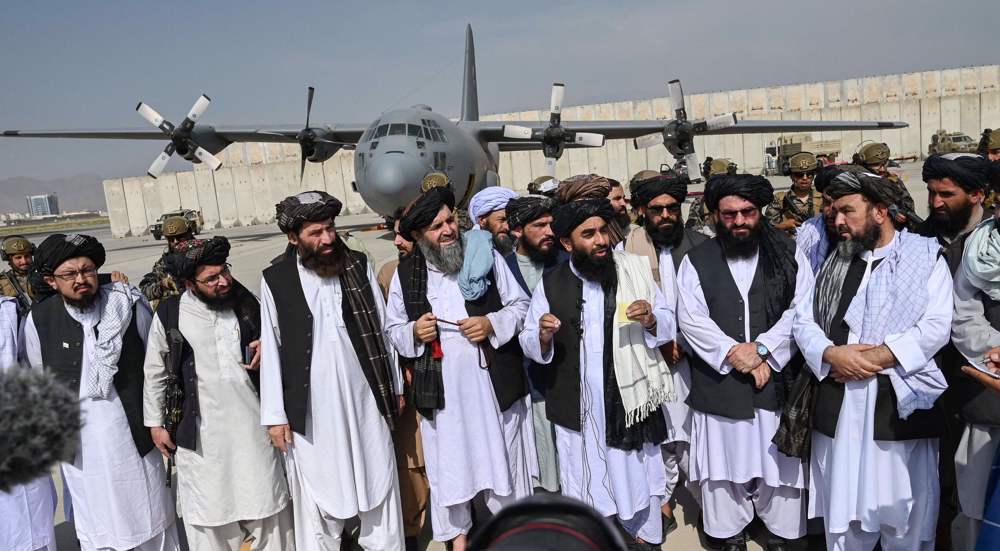
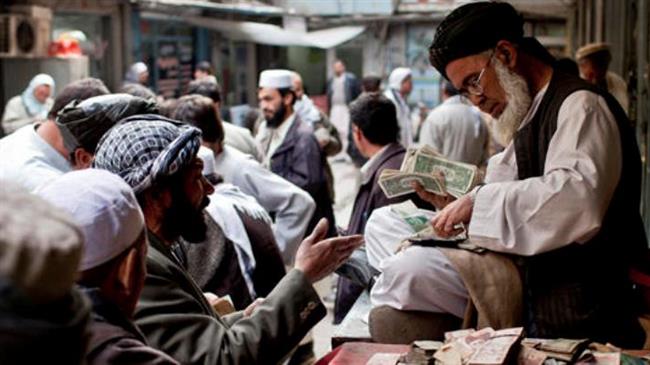
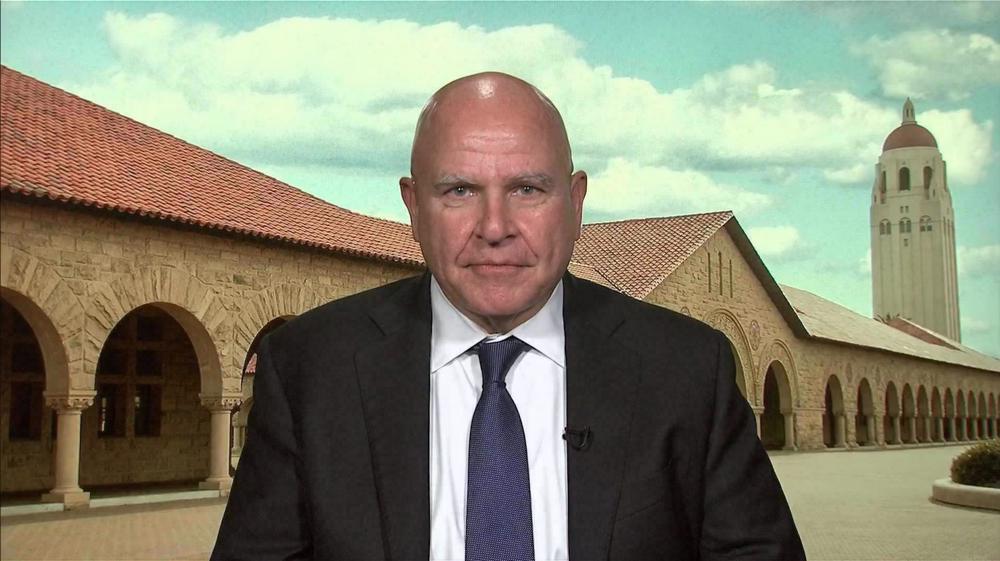
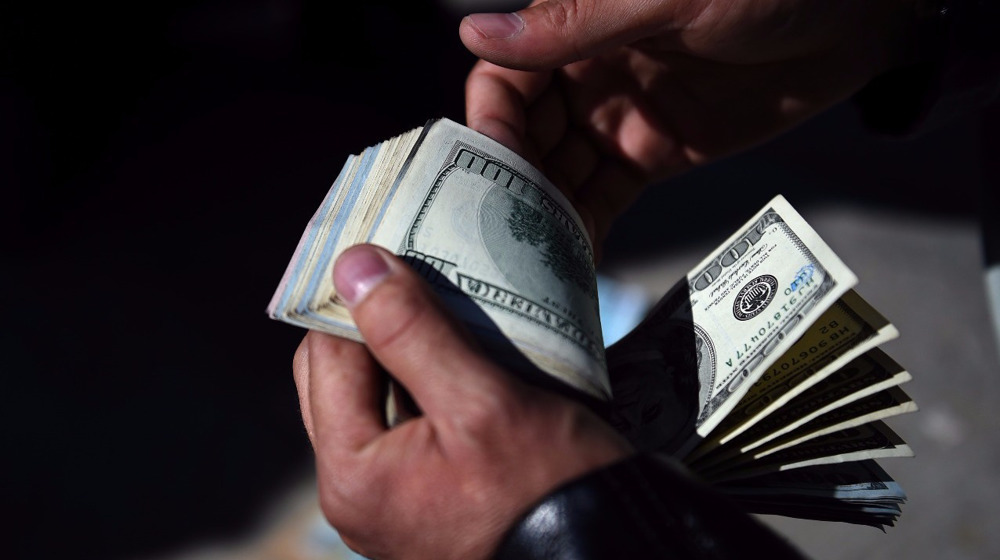
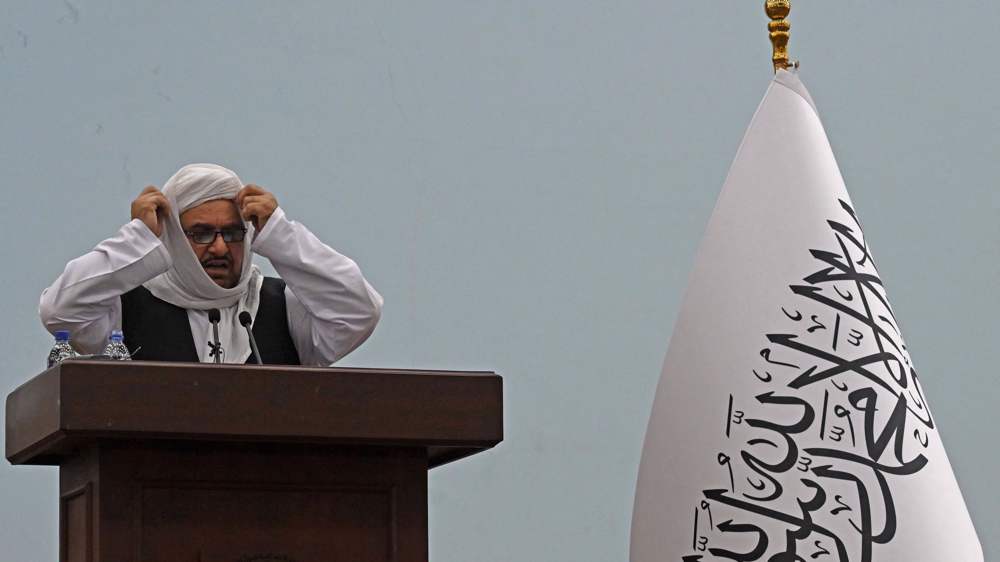
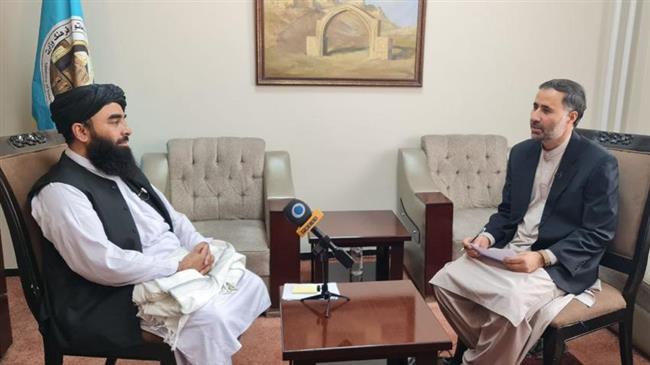
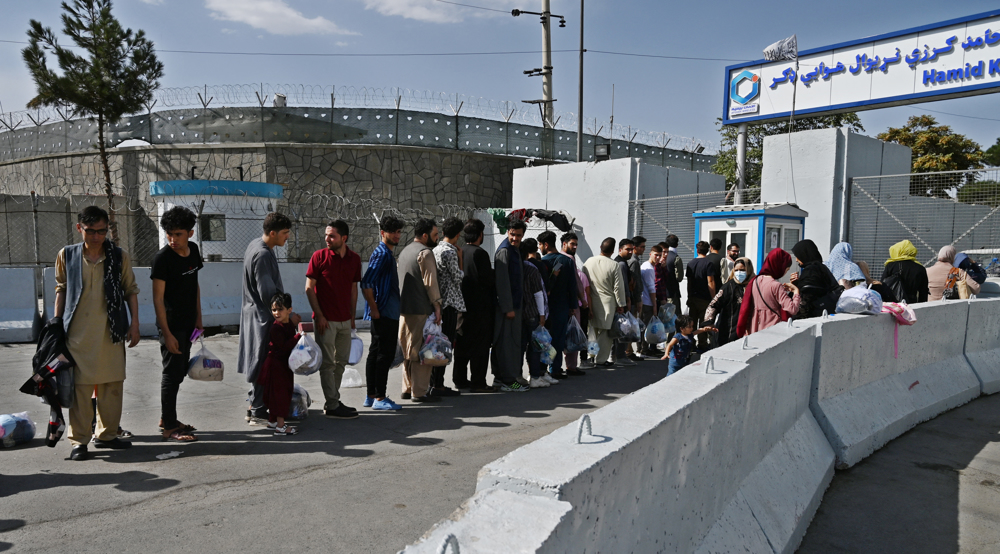

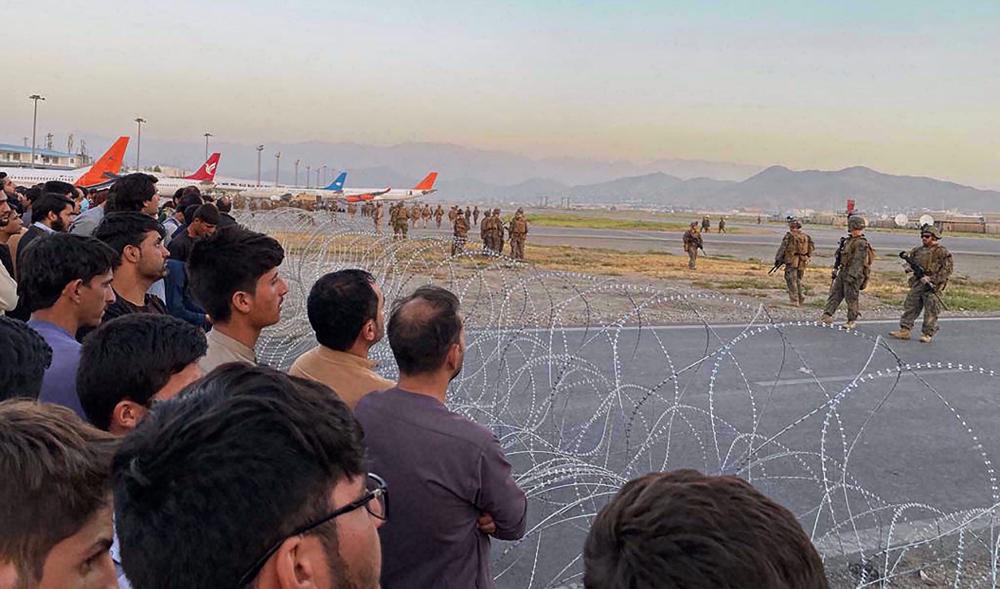
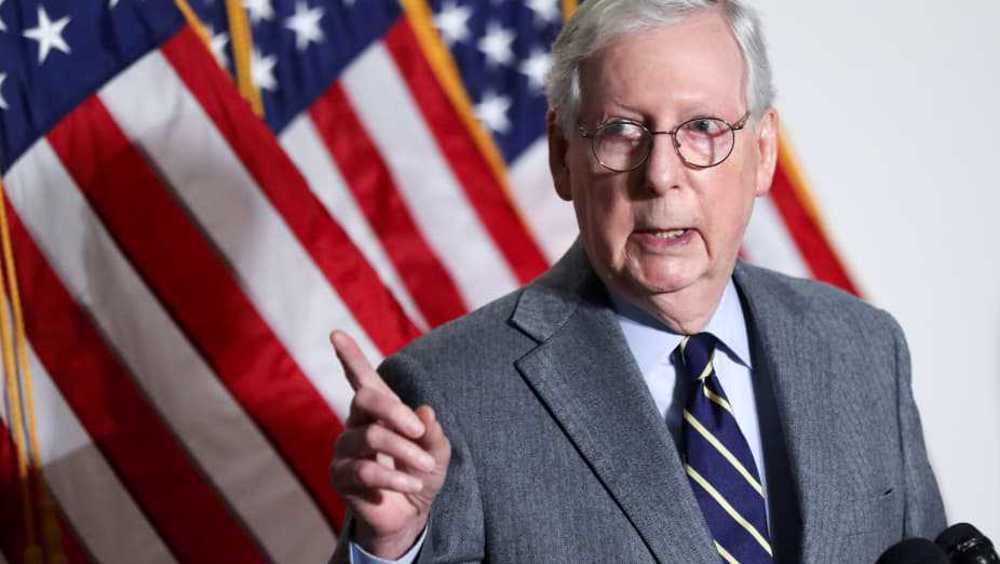
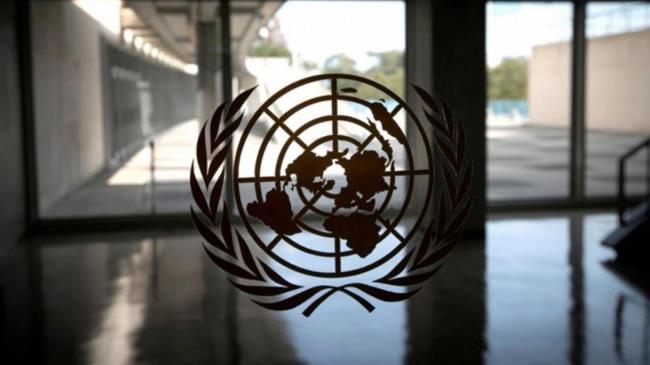
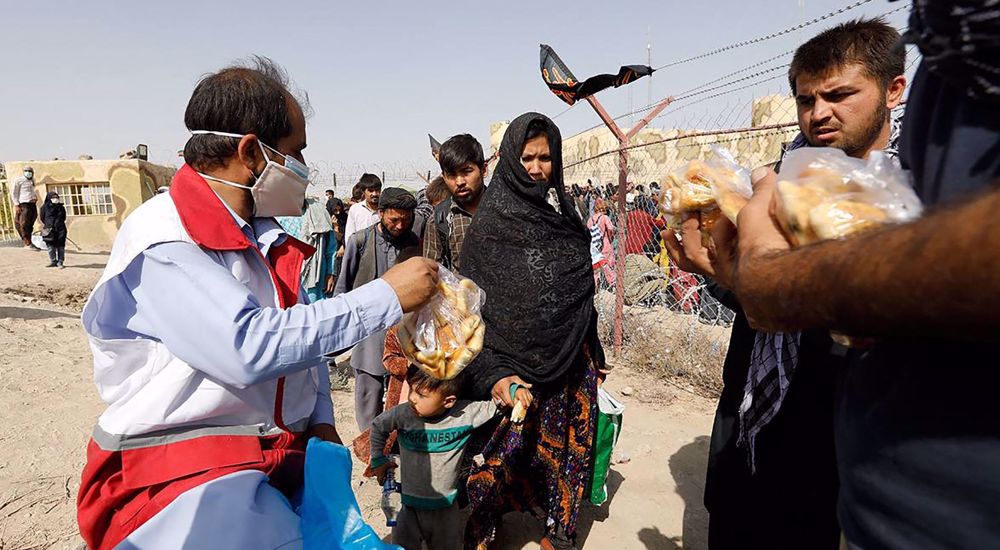
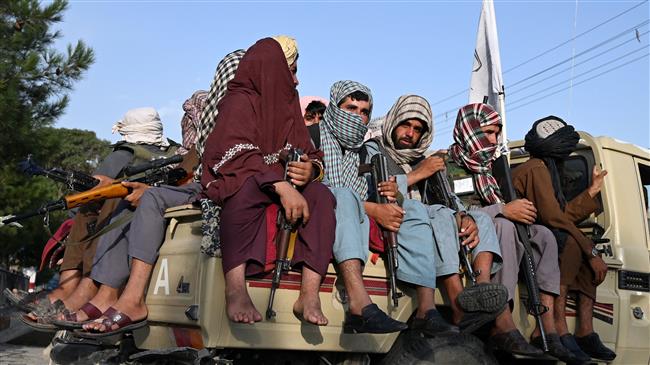
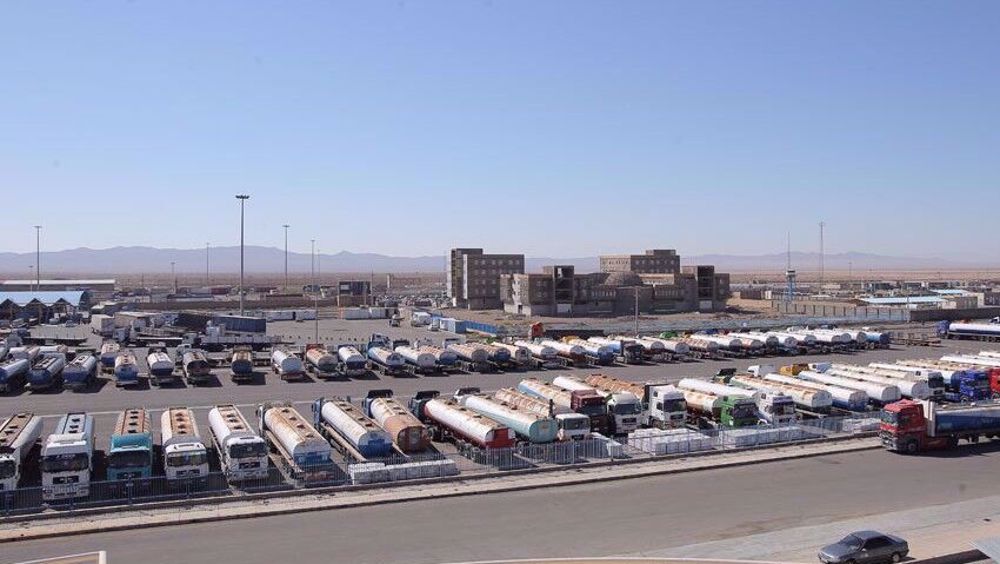
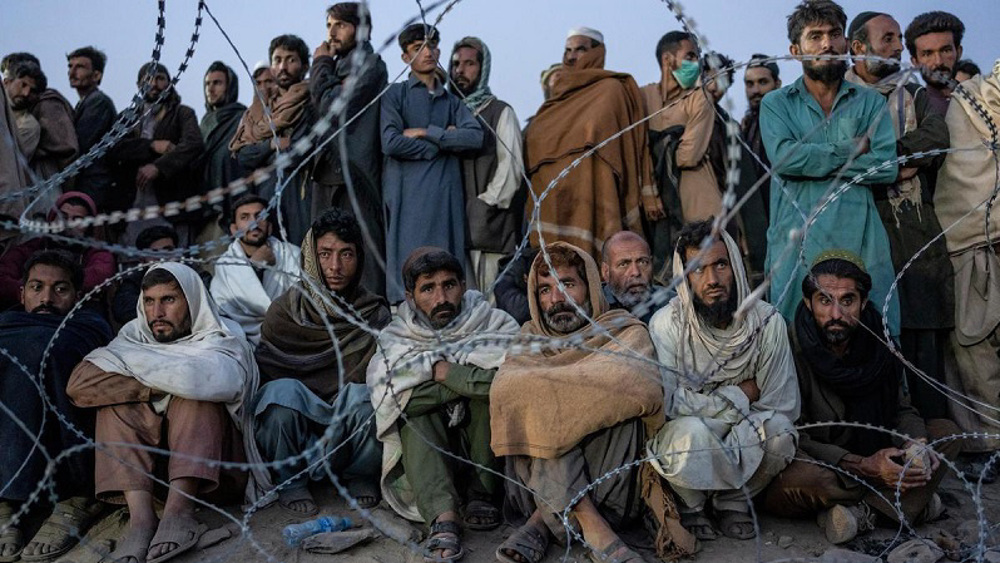
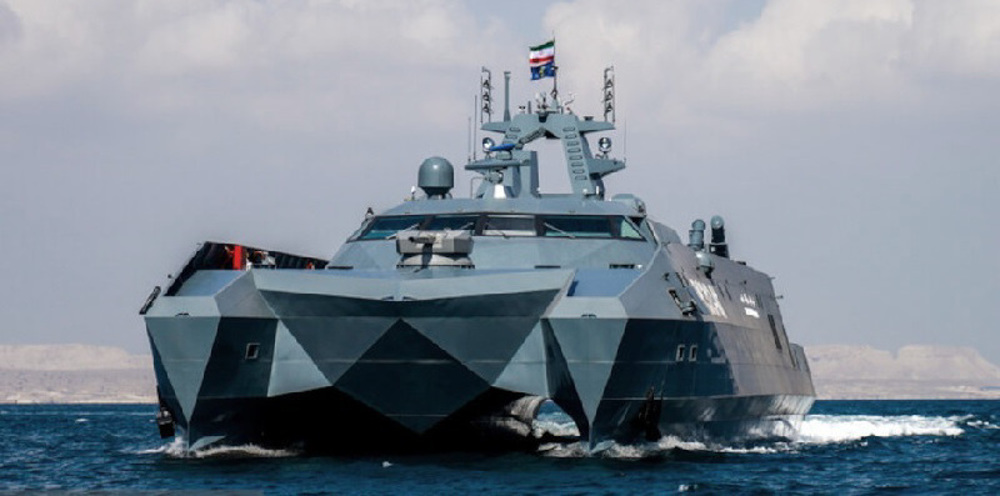




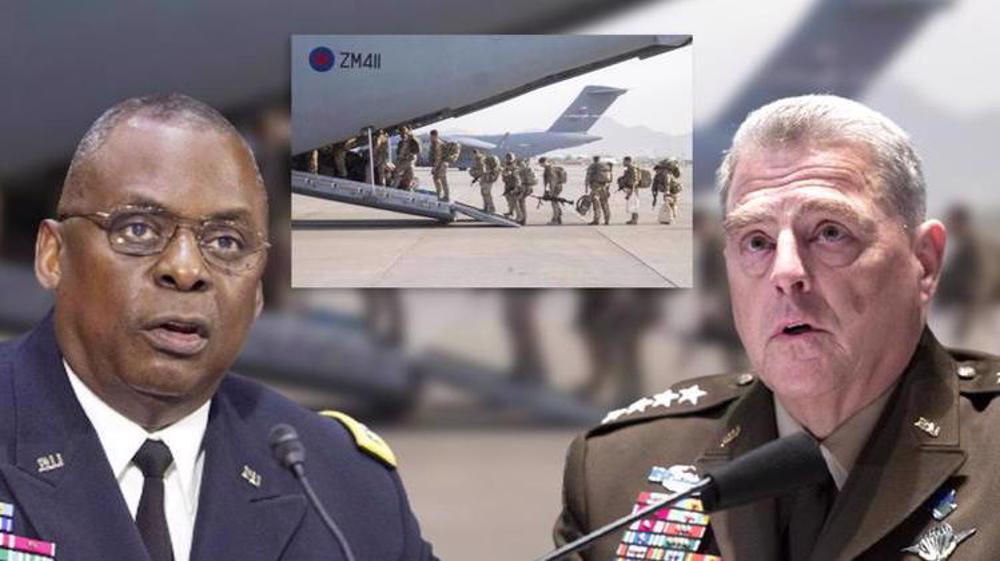
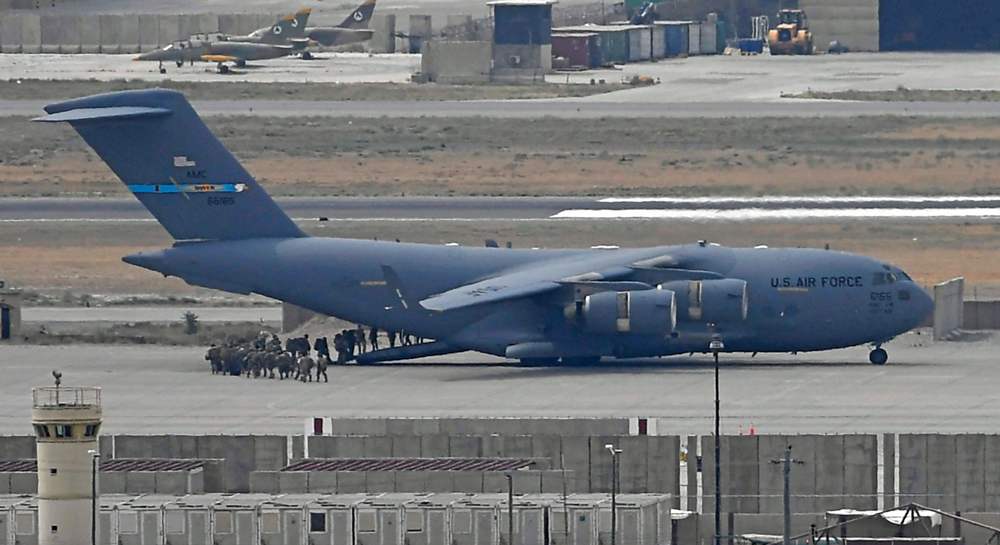
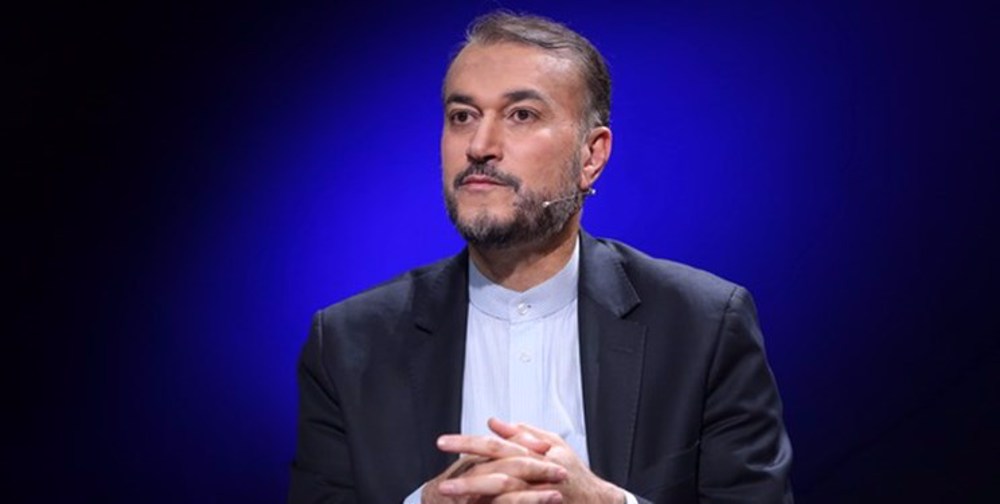
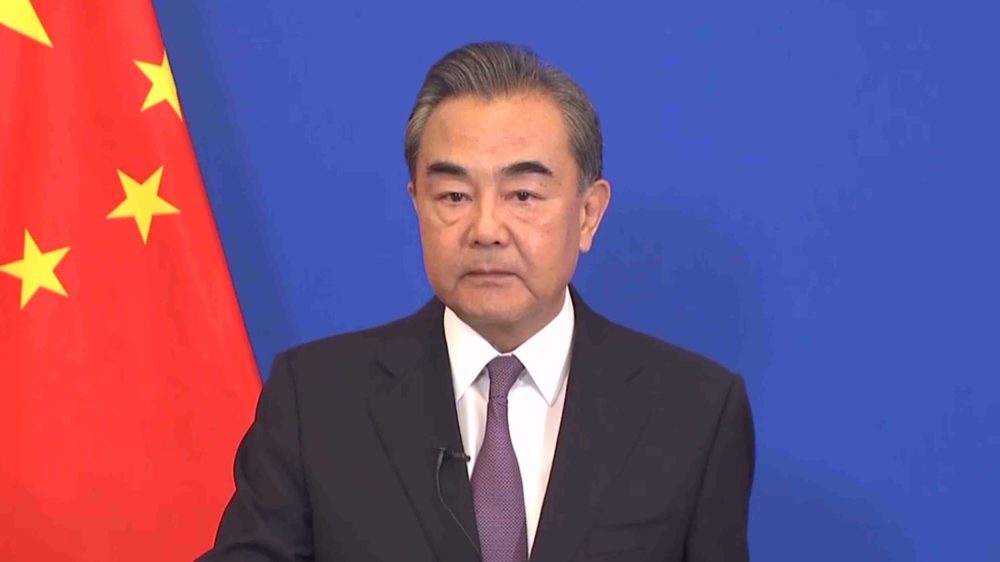
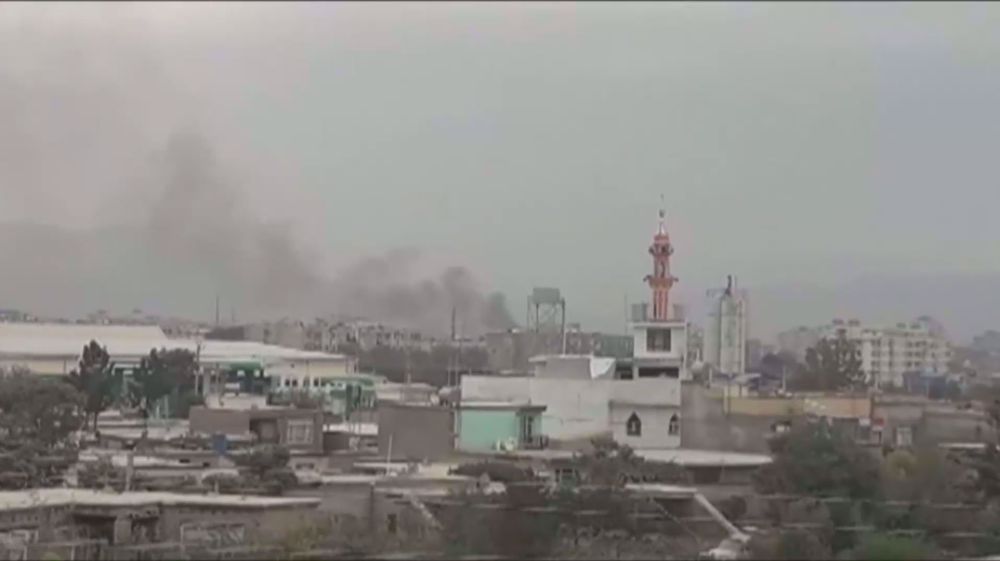
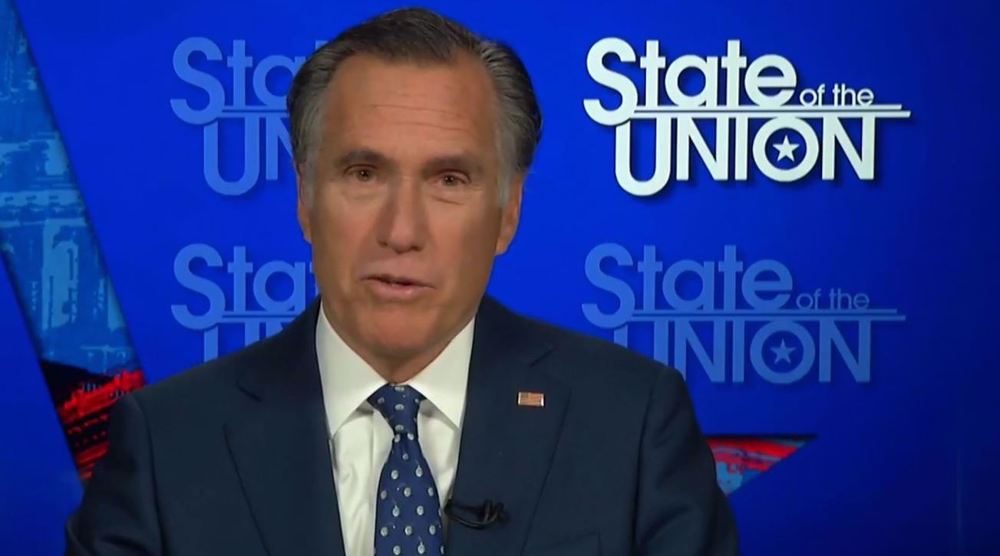
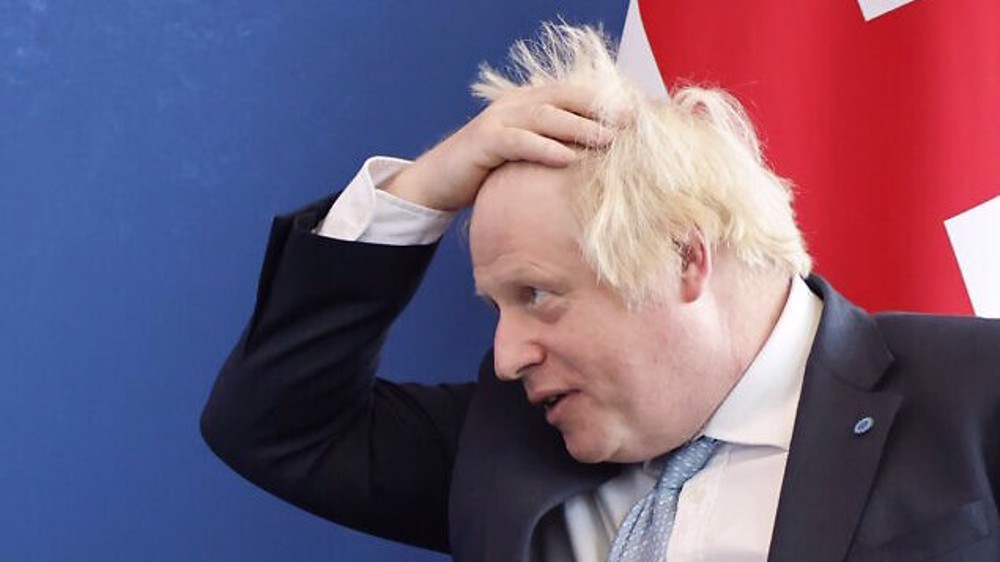
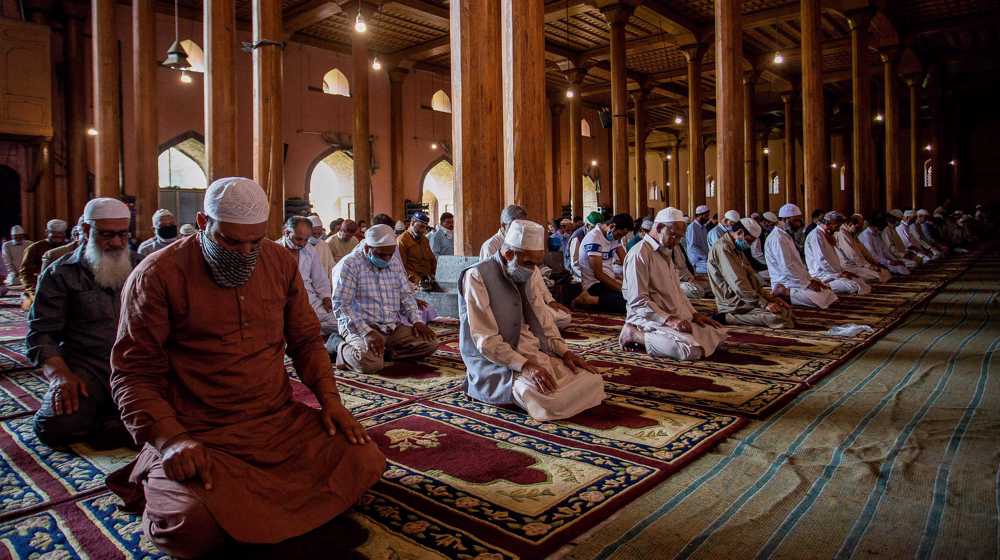
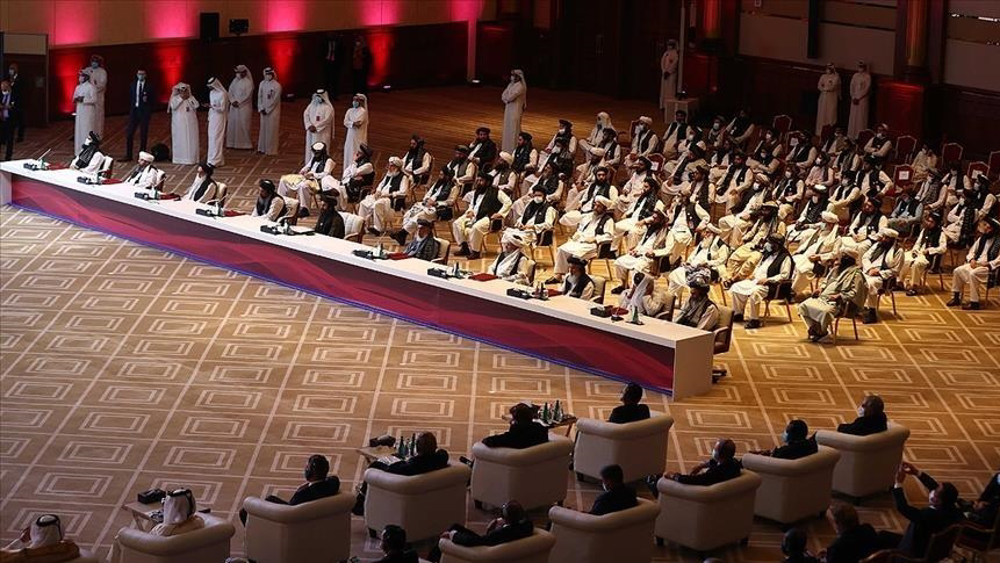
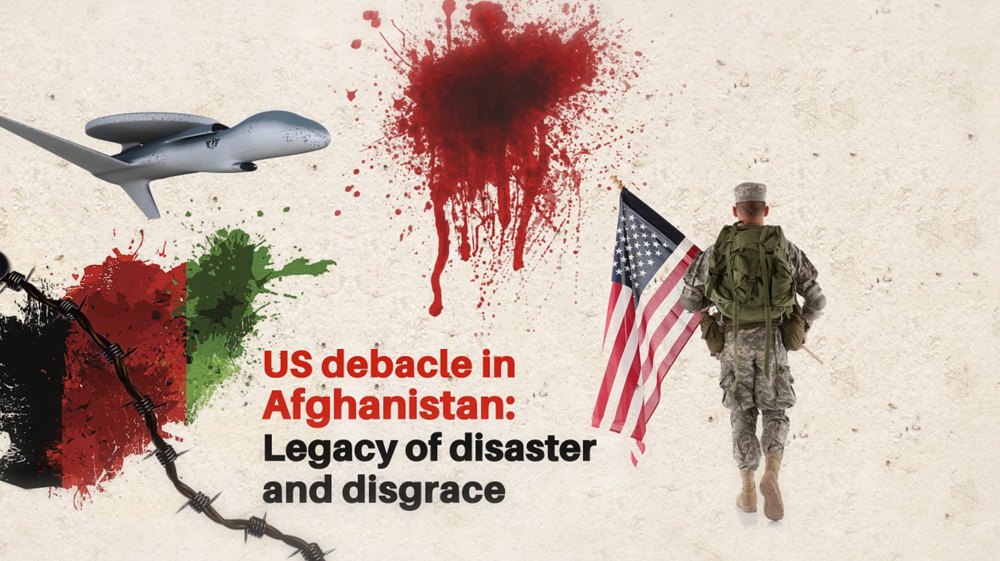

 This makes it easy to access the Press TV website
This makes it easy to access the Press TV website